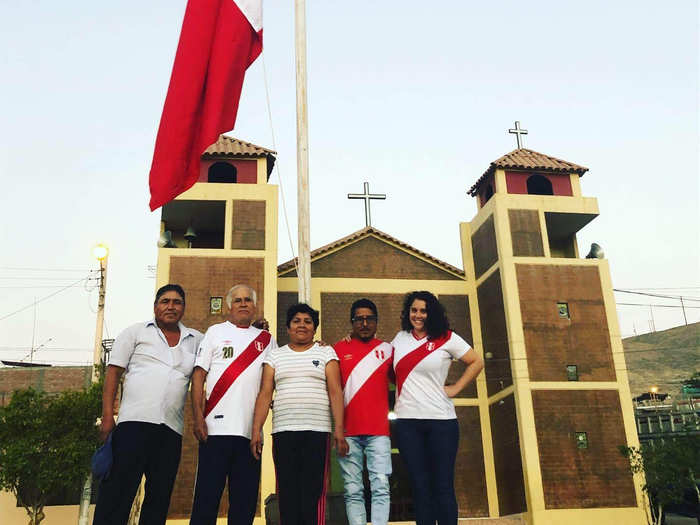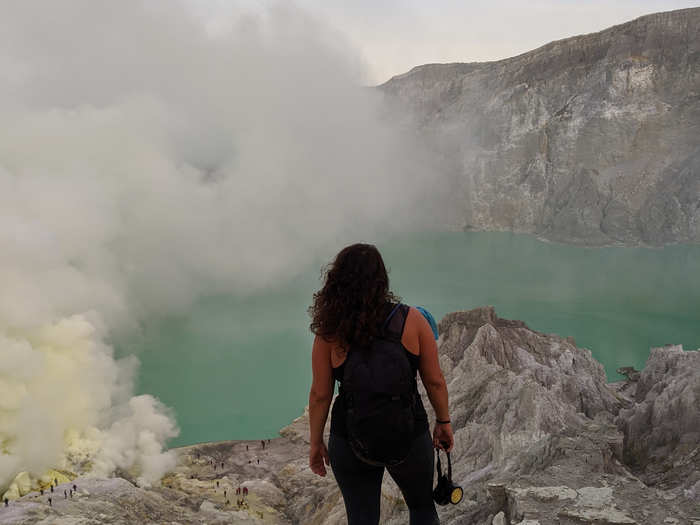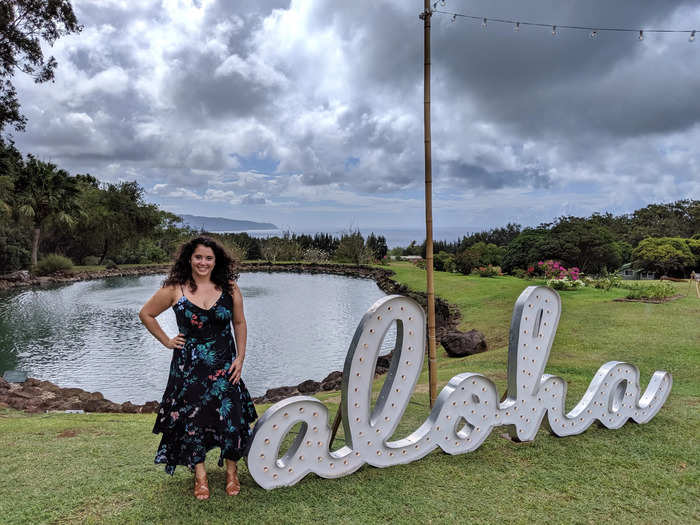- Home
- slideshows
- miscellaneous
- I started my own digital nomad business so I could travel more, and I replaced my corporate salary within 4 months. Here are the 5 steps I took to do it.
I started my own digital nomad business so I could travel more, and I replaced my corporate salary within 4 months. Here are the 5 steps I took to do it.
1. Make the decision

2. Figure out your finances

Being a digital nomad means you're not just traveling, you're earning money to support yourself. You need to determine how you'll do that, whether that's negotiating with your current employer to work remotely, go freelance, or start your own business.
If you decide to go freelance or start your own business, that's a huge change. Doing it successfully doesn't happen overnight. If you decide to go this route, make sure you know you'll be able to support yourself financially before you go nomad, whether that's starting your business as a side hustle or locking in your first clients. Once you know you can bring in money, you need to figure out how you'll do it while abroad. How did you get your current clients? Can you use the same tactics when you're traveling, or do you need to try new methods?
Even working remotely for your current company is a big change — how will you handle it? Find ways to adjust: Start by working from home a few days a week if you can, or taking a short test trip where you work remotely.
Getting rid of your debts and having a substantial cushion of savings is probably the single most important financial move you can make. Unless you have guaranteed income, having to pay down debts is going to be a source of stress. I was able to pay off my debts many years ago, but if you're not so lucky, I recommend doing everything you can to pay yours down or off before you leave. Ultimately, paying a loan is another fixed cost, so as long as it's accounted for in your budget and you know you can afford it, you're OK.
Savings means freedom. Save up as much as you can, try for at least six months' expenses. I had about $30,000 saved up when I quit my job. Having savings gives you the opportunity to wait for the right clients, not freak out if a client is late on payment, set your own standard of living and to take advantage of all the amazing opportunities you'll have from being a nomad.
3. Get your life in order

Once you've got the "digital" job side of things figured out, time to figure out how to "nomad."
Most important: your passport. Check the expiration date (make sure it's at least six months after you plan to come back) and that you have plenty of blank pages — it can take a while to replace. I renewed mine well before I left so I could visit my Peace Corps host family in Peru.
What will you do with all your stuff and any property you have? I donated and sold most of mine and kept the rest at my mom's (thanks mom!), but not everyone has that option. If you don't want to get rid of all your worldly possessions and property, you could look into renting it out through a property management company, storing it with a friend, or getting a storage unit. Just make sure to budget for any fixed costs.
How will you take care of your health, safety, and property while abroad? I made sure to go to my doctor, dentist, gynecologist, and dermatologist while I was still on my employers' health insurance. I went to a travel clinic to get all the vaccinations I might need (and dang was the Japanese Encephalitis vaccine expensive). I got an IUD so I wouldn't have to worry about birth control. I agonized over health and travel insurance plans, and eventually opted for travel medical insurance designed for nomads, Safety Wing. It's relatively new and I couldn't find a lot of testimonials from real users, so it felt a bit risky, especially because even though I'm young and healthy, I seem to have a propensity for injury. But I liked that it was designed by nomads for nomads and has all the coverage I'd want outside of annual checkups – and most of all, that it's only $37 dollars a month. I didn't get travel insurance, and I still stress about the fact that if all my stuff gets stolen, I'll have to pay out of pocket to replace all of it. However, with the amount I'm saving on health and travel insurance, I'll have the money to cover myself — and less of a chance that I'll have to spend that money (knock on wood).
How will you handle the day to day realities of your life and business, like communications and banking? I spent a lot of time researching various products. A lifelong iPhone user, I switched to a Google Pixel 3 with Google Fi so I could pay one price for unlimited data worldwide and keep my phone number for two-factor authentication instead of constantly purchasing local SIM cards and changing my phone number. I kept my trusty MacBook Air and got a global WiFi hotspot. I switched to credit cards with travel rewards and no currency conversion fees after doing research on NerdWallet, and made sure to get a card with a chip and PIN, because a PIN is required in certain places including most of Europe. I also got debit cards with no currency conversion fees and no international ATM fees (shoutout to Charles Schwab High Yield Investor Checking!).
4. Map it out

It's important to visualize where you want to go. Research the countries you have in mind — the visa requirements, the budget, where you'll stay, where you'll work. I also made a spreadsheet for this, and never planned to stick to it, but it helped me feel comfortable with my budget and be mentally prepared.
Research will also help you decide what to pack and realize what else you might need to do before you leave. I wanted to start in Bali because it's a huge digital nomad hub, and I read that it's really helpful to have a scooter — and that you need a motorcycle license to ride one. So I spent a weekend taking a class ($300), got my motorcycle license ($77), and got an International Driving Permit ($20) before I left. Do this several months in advance — my DMV was overwhelmed with license applications from switching to REAL IDs. Requirements vary by state, so make sure you check online.
Plan to spend time with friends and family before you go, and talk about how you'll stay connected while you're away. Although I lobbied hard for my dad to get a cell phone — I actually gave him one so he could WhatsApp me — he refused, but he did add international calling to his landline. I'm a big fan of Marco Polo, which lets you send video chats — great for communicating asynchronously across time zones.
Also, don't forget to make a contingency plan. Mine is to go back to living with my mom and looking for a job in DC if my savings ever were to get down to about $4,000. That's enough to cover a flight home and expenses in case something happened and I needed to find a job.
5. Adapt on the road

Nothing will ever be exactly as you picture it. I always say the key to happiness is low expectations. Be ready to go with the flow and be flexible once you start your journey — that's what makes being a digital nomad amazing: being able to follow your heart around the world. You have to find what works best for you. I was in a very privileged position to be able to take this leap — I had valued skills and experience, financial independence, a supportive family, no real responsibilities, and an American passport. If you don't have those things, you can still be a digital nomad, there will just be additional challenges along the way. But no matter your circumstances, planning your transition to nomadic life before you make the leap will make you more likely to succeed — whatever your definition of success is.
Tasha Prados is the founder of Duraca Strategic, which helps purpose-driven organizations maximize their impact through branding, business, and marketing strategy consulting. She has 10 years of project management and communications experience with the world's leading brands, agencies, and organizations. Prados is also a freelance writer, digital nomad, and former Peace Corps Volunteer. Follow her travels on Instagram at @t.prad.
Popular Right Now
Popular Keywords
Advertisement